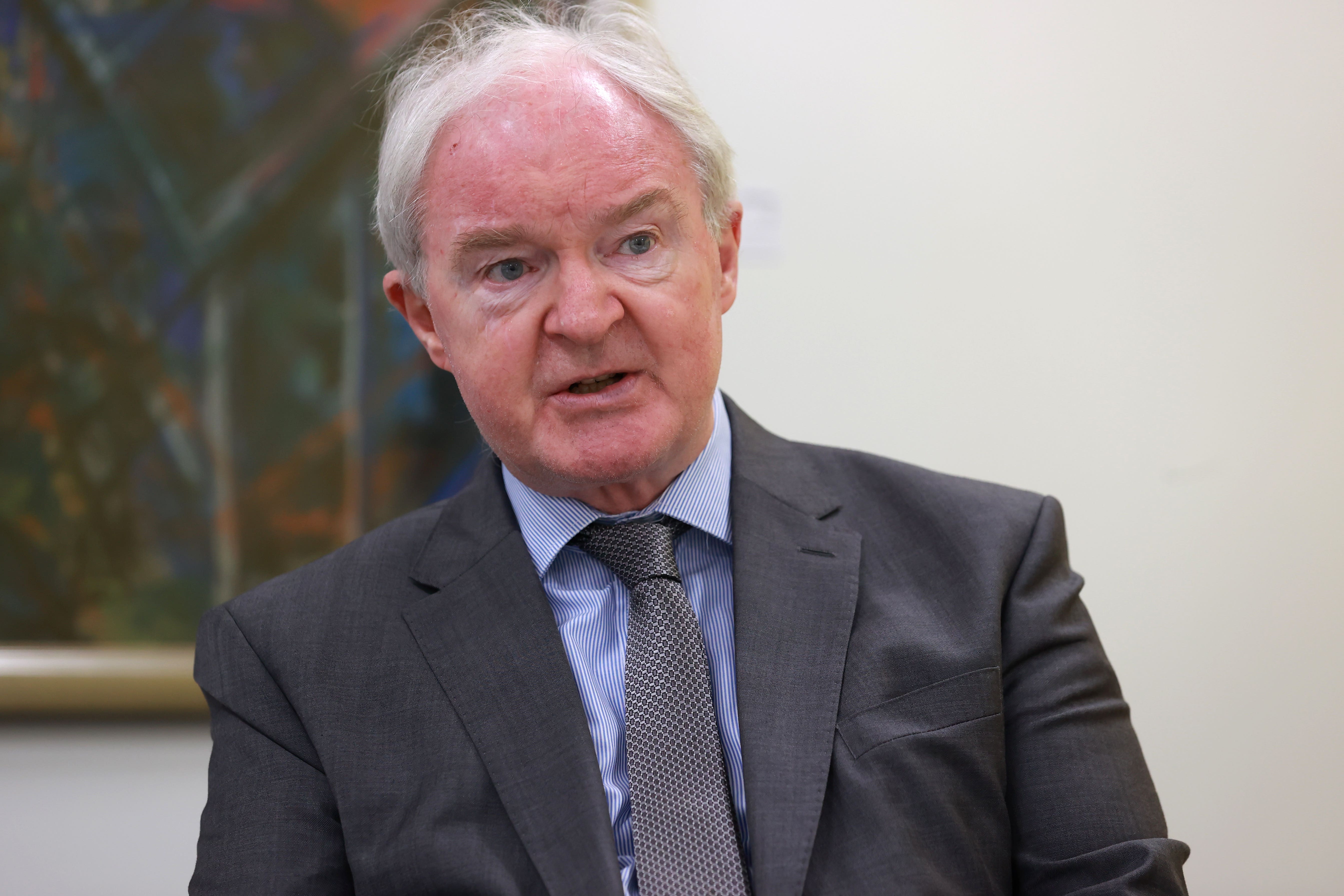Troubles body ‘carefully’ selected former top police officer as new commissioner
Peter Sheridan is to become commissioner for investigations at the Independent Commission for Reconciliation and Information Recovery.

Your support helps us to tell the story
From reproductive rights to climate change to Big Tech, The Independent is on the ground when the story is developing. Whether it's investigating the financials of Elon Musk's pro-Trump PAC or producing our latest documentary, 'The A Word', which shines a light on the American women fighting for reproductive rights, we know how important it is to parse out the facts from the messaging.
At such a critical moment in US history, we need reporters on the ground. Your donation allows us to keep sending journalists to speak to both sides of the story.
The Independent is trusted by Americans across the entire political spectrum. And unlike many other quality news outlets, we choose not to lock Americans out of our reporting and analysis with paywalls. We believe quality journalism should be available to everyone, paid for by those who can afford it.
Your support makes all the difference.The incoming head of a Troubles legacy body has said he recognises that some people will have concerns that its new commissioner for investigations has a policing past with the RUC.
Former senior police officer Peter Sheridan is to become commissioner for investigations at the Independent Commission for Reconciliation and Information Recovery (ICRIR), which will take over hundreds of unresolved Troubles cases.
Former Lord Chief Justice for Northern Ireland Sir Declan Morgan is the incoming chief commissioner of the ICRIR.
Sir Declan told the PA news agency: “I can recognise that for some people they will have some concerns that Peter has a past history in the RUC, that is something that the selection panel considered very carefully in coming to a decision about the appointment.
“But Peter has also indicated to us that so far as his service was concerned, he didn’t anticipate that there would be any conflicts arising in relation to the work of the commission. In any event we are developing a conflict of interest policy which will specifically address that.
“Taking into account the way in which for the past 15 years he has engaged in peace building and in pursuing reconciliation that is a strength which was particularly important in terms of finding that he was the best man for the job.”
The body will take over hundreds of unresolved Troubles cases when the Government’s controversial legacy Bill becomes law.
The Northern Ireland Troubles (Legacy and Reconciliation) Bill will give a limited form of immunity from prosecution for Troubles-related offences to former terrorists who co-operate with the ICRIR.
It would also prevent future civil cases and inquests.
The Bill is opposed by all major Stormont parties, the Irish Government and victims’ campaign groups.
I am absolutely committed to carrying out this role without fear or favour and I fully expect everyone to hold me accountable to do this
Mr Sheridan said: “I’ve spent the last 15 years working for an organisation that is dedicated to bringing peace and reconciliation to Northern Ireland – and before this, a substantial period of my career working to deliver law and order in our community.
“I am absolutely committed to carrying out this role without fear or favour and I fully expect everyone to hold me accountable to do this.
“There is nothing I want more than to see people given the information and closure they need, using the full range of powers and tools that the commission will be able to bring to this work, so that we can all move forward together.
“We may never forget the past, but I hope we will be able to focus on building an inspiring future together for Northern Ireland, for the sake of future generations.”
I’m delighted that this significant milestone has been reached in our work to establish the commission
Mr Sheridan is expected to start work in December, once prior commitments are completed.
He will be supporting Sir Declan engaging with interested groups to ensure input from as wide a range of views as possible, as the commission establishes its policies and procedures ahead of opening for requests from next summer.
Mr Sheridan has previously been made an OBE for his services to policing and a CBE for his work at Co-operation Ireland.
When he retired from policing he was the most senior Catholic officer in the PSNI.
During his work with Co-operation Ireland, he was instrumental in arranging the meeting between the late Queen and the then deputy first minister, Martin McGuinness, in 2012.